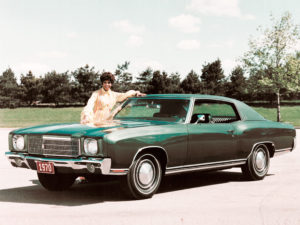The U.S. Department of Transportation’s National Highway Traffic Safety Administration (NHTSA) has proposed a rule that would enable more mobility options for people with physical disabilities. The notice of proposed rule making reads that it would allow two new modifications to rental cars for adaptive equipment.
“This rule will make it easier for individuals with disabilities to achieve greater mobility and freedom in their lives,” said U.S. Transportation Secretary Elaine L. Chao.
The first of the proposed changes would allow rental car companies to temporarily disable a driver’s knee bolster air bag to install hand controls. These types of controls allow people with disabilities such as lower extremity paralysis to perform all the functions of driving a vehicle using just their hands.
If hand controls are installed and the airbag is not disabled, according to the NHTSA, the resulting force of the airbag’s deployment “could cause the hand controls to strike the driver with extreme forces and create a serious risk to the safety of the driver”.
Another proposed change would allow for the installation of rear-mounted transporters for wheelchairs and power scooters. This type of adaption could block the rearview camera’s sight lines – cameras are now required in every new vehicle – but would improve mobility for drivers and passengers with disabilities.
“Safe and accessible transportation is vital for people with disabilities. This rule will enable them to rent a wider range of cars and make it easier to transport their wheelchairs and scooters, which will improve their quality of life,” NHTSA Deputy Administrator James Owens said.
Current federal law prohibits a manufacturer, distributor, dealer, rental company, or motor vehicle repair business from knowingly making inoperative any part of a device or element of design installed on or in a motor vehicle in compliance with a Federal Motor Vehicle Safety Standard. These rules changes, if approved by the NHTSA, would allow a two specific exemptions in an effort to balance mobility and safety in rental car situations.
The public will have 30 days to comment before the process moves forward.








